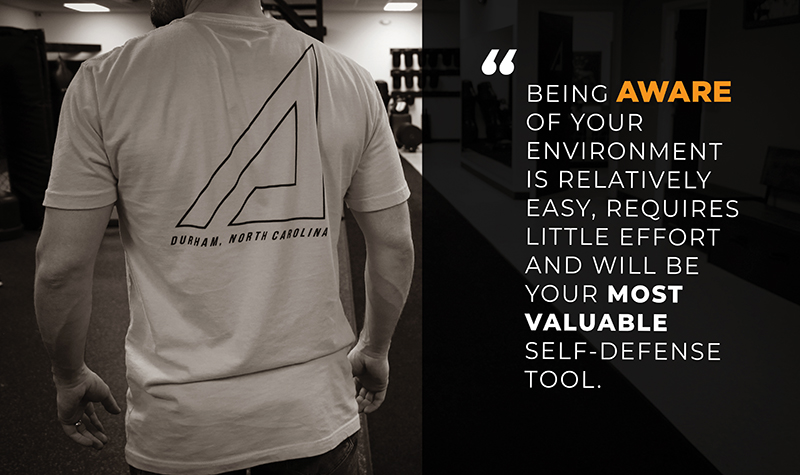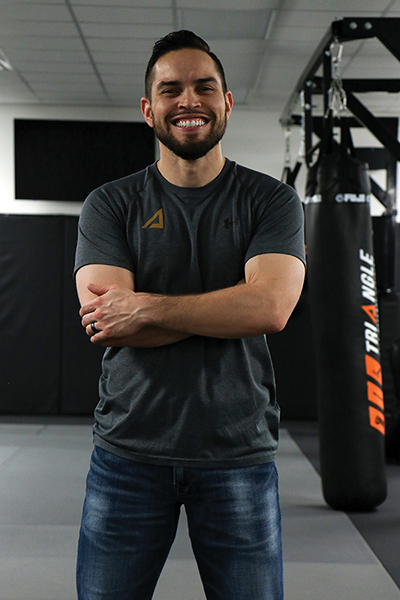By Stewart Edmiston
ACCORDING TO THE FBI’S most recent Crime in the United States report, a violent crime—aggravated assault, robbery, rape, murder—occurs every 24.6 seconds in the United States. Although these statistics may be disturbing, there is some good news. The good news is that your chance of experiencing a violent crime is rather low. However, every city and community has its fair share of violent criminals and sexual predators. These heinous people want and need to cause pain, suffering, and violence to others. It can be difficult for some to accept the fact that violent crime exists all around us and violent people live among us. Keep in mind, there is no particular place, type of person, or specific individual that is immune to violence.
Just because violent crime is prevalent, it doesn’t mean that you’ll actually be attacked. It just means that it’s possible. It means that you certainly can’t rule it out. Security specialist, expert witness, U.S. Department of Justice advisor, and author of the #1 best seller The Gift of Fear Gavin de Becker provides expert insight on violent crime: “In a very real sense, the surging water in an ocean does not move; rather, energy moves through it. In this same sense, the energy of violence moves through our culture. Some experience it as a light but unpleasant breeze, easy to tolerate. Others are destroyed by it, as if by a hurricane. But nobody—nobody—is untouched.”
So, you may be thinking, “Okay, great, violence is everywhere. We got it. What should I do to protect myself?” One critical step in being able to defend yourself against violent criminals is to analyze them. The best way to defeat attackers is to understand their motives, tendencies, and the psychology responsible for their behavior. Think of competitive sports. Teams analyze each other to develop strategies to defeat the other. My goal is to help you analyze typical violent criminals and create a strategy to stay safe and protect your loved ones.
CRIMINOLOGY AND VICTIMOLOGY
What makes a predator choose its prey? Think about the last nature documentary you watched where a ravenous pride of lions hunted down a herd of buffalo. The lions strategically work together to isolate and attack one particular buffalo. But why does the pride choose that particular buffalo over another? Most often, lions will target a young calf or injured member of the herd. What is it about the young calves and injured buffalo that make them desirable prey? They are perceived as weaker, slower, less mobile, and less dangerous than the rest of the herd. From the perspective of a predator, it makes perfect sense. Why go after prey that is strong, dynamic, and aggressive if you have the option to choose the prey of least resistance?
What does all this have to do with self-defense for amputees? Violent criminals often select their victims based on criteria similar to those of lions hunting a buffalo. When given the option, bad guys will often also choose the prey of least resistance. From the perspective of violent criminals, it makes more sense to victimize people they perceive to be easy targets, such as those with disabilities. So, what can you do to ensure you are not seen as an easy target? Your primary goal is to show potential criminals and predators that you are aware of them and convince them that you are prepared to take action and fight back if necessary.
There are three important things that bad guys want to avoid when targeting a victim that you can exploit. Bad guys don’t want to get hurt, they don’t want to get caught, and they don’t want the encounter to last long. If you can pose any of these risks to a potential bad guy, it makes you less of a victim and more of a problem to them.
FIVE KEY CRIME DETERRENTS
If a violent criminal has perceived you as an easy target or you just happen to have found yourself in the wrong place at the wrong time, here are some self-defense strategies to improve your personal safety and security:
- Stay alert, aware, and prepared. Know your environment, notice people or things that are out of the ordinary, and be prepared to take action.
- Be able to display assertive and confident body language. Your posture and body language will often send a message to your adversary. Make sure you send the right message.
- Be capable of setting strong verbal boundaries. Use your voice to attract witnesses and establish boundaries. Your tone and volume should project that you are not to be messed with. The closer the threat, the louder the voice.
- Know your line in the sand. Preemptively decide what you are willing to tolerate and what you are willing to fight for. Once your line in the sand has been crossed, it’s time to respond quickly and aggressively.
- Be prepared to cause physical harm. We know that criminals don’t want to get caught or injured. Scratches, bruises, and injuries increase their chances of being caught, and injured predators can’t hunt.
Probably the most significant crime deterrent of the five is awareness. The main objective of awareness is to develop a proactive rather than reactive approach to personal security.

AWARENESS IS EVERYTHING
Astute awareness is an essential and universal self-defense skill that you must develop, practice, and implement in your daily life. It is defined as having or showing the ability to accurately assess situations and people and turn this to one’s advantage. This concept of using awareness to create an advantage is very important, especially for those who may be perceived as easy targets. The very nature of self-defense implies a disadvantage. Consider the fact that the criminals will control the fight—they will choose the time, place, duration, and level of aggression. They know what they want to do and how they intend to do it. If you ever have to defend yourself, you will likely be reactive rather than proactive. Being reactive in a self-defense situation means that you will be starting from a position of disadvantage. So what are some things you can do to improve your awareness in self-defense situations? First, practice awareness in your everyday life. Keep your head on a swivel, analyze your environment for threats, and live in the present moment. Second, allow your environment to dictate your level of awareness. Be able to rapidly modify your awareness level based on your environment. The more dangerous the situation, the more aware you should become. Third, know what to look for. Think like a criminal. How, where, and why would you attack or ambush someone else? Look for aggressive body language and pre-assault cues that you can use to create defensive advantages for yourself.

THE BEST DEFENSE IS NO DEFENSE
Awareness is a skill that you can and should practice, develop, and refine. Being aware of your environment is relatively easy, requires little effort, and will be your most valuable self-defense tool. The better your awareness, the better your chances are of avoiding and preventing violent situations. If mobility and strength is a concern for you, it would be wise to master awareness, avoidance, and prevention. You may not have the capability to quickly escape and flee from a violent situation or you may not have the physical strength to go toe-to-toe with an aggressive attacker. But you can leverage your mind. You can leverage your understanding of criminal psychology, crime deterrents, and astute awareness to create defensive advantages for yourself and those you care about.
The primary message I’d like to convey about self-defense is to avoid having to use it. The best self-defense is no defense. Physical altercations are a worst-case scenario and should be avoided if at all possible. Learn to trust your instincts and gut feelings. Your intuition is a powerful survival mechanism that you must cultivate, listen to, and respect. Keep in mind, you won’t be able to rely on instincts and intuition if you are completely unaware of what’s going on around you.
Stay Aware. Be Prepared. Defend Yourself.



